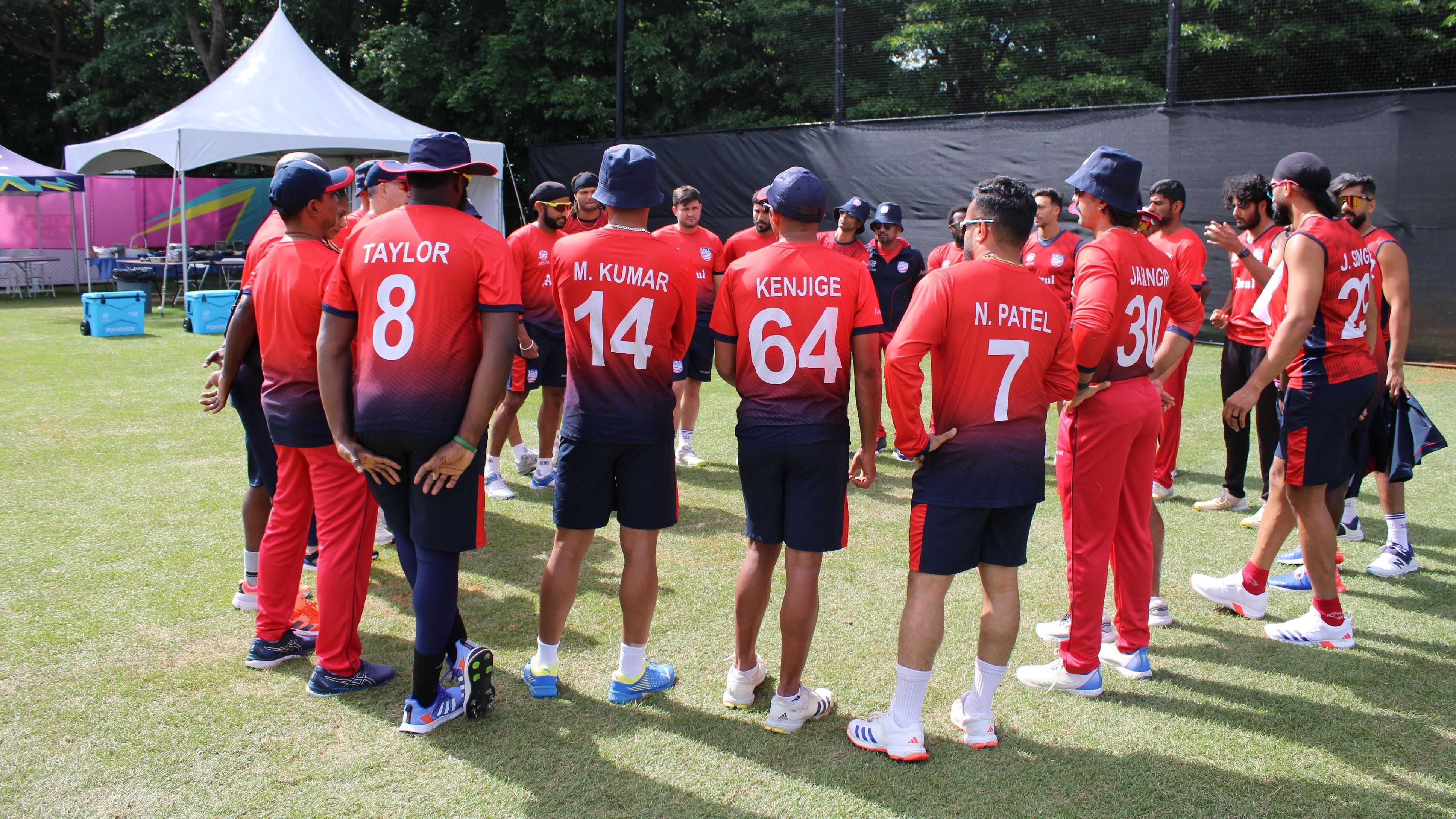
US cricket team in a huddle during training.
Credit: X/@T20WorldCup
New York: USA head coach Stuart Law refused to blame his team's narrow loss to India in a T20 World Cup match here on the five-run penalty it copped for not getting through its overs fast enough, admitting that his players did not respond quickly to the on-field umpires' warnings.
The Indians prevailed by seven wickets in yet another low-scoring game in which the Americans were restricted to 110 for 8 after being put in to bat. India chased the target in 18.2 overs.
"We had a few warnings in earlier games, and it's something we do talk about to get through faster between the overs. It's just one thing that we can improve on. I think that we're only a fledgling team," Law said in the post-match press conference.
"There's plenty to learn. There's not just the cricket aspect of the game of cricket, but there's also the other intricacies that need to be embedded. It's a rule that's only just come in.
"A lot of our players wouldn't have heard about it before we played in the Bangladesh series or the Canada series earlier this year," he added.
The ICC had introduced the stop clock rule in December 2023, making it mandatory for the fielding side to start a new over within 60 seconds of the completion of the previous over.
An electronic clock, counting down from 60 to zero, is displayed on the ground, and the third umpire can determine the start of the clock.
The failure of the fielding side to be ready to bowl the first ball of its next over within the stipulated 60 seconds attracts two warnings, and the subsequent breaches lead to a five-run penalty per incident.
The Americans were penalised when India needed 35 of 30 balls. The penalty wiped off the ball deficit for India.
But Law was clear that turn of events had no bearing on the final outcome of the match in which his team did fight hard against bonafide superstars of the game.
"Five runs wasn't going to affect the outcome of the game so I don't think it rattled them. No, I thought we stuck to our guns, we fought hard, we fought to the death. We showed some fantastic character against one of the best teams in the world," he said.
However, the 55-year-old former Australian batter said his players could have responded faster to the warnings.
"...players know the rule, but it's something that if you haven't played with it for a long time, it's very difficult to have it embedded in your brain," he said.
"So, the information coming from the umpires was, they were given two clear warnings, then it's up to the players to respond. And we didn't respond fast enough, we didn't do it well enough, and that's something we can address," he asserted.
He also refused to criticise the rule, saying the pace of the game needs to be maintained and if that requires a level of strictness, he is fine with it.
"If you're dragging games out that should last three and a half hours, they're going for four and a half hours, that's a bit much. The ICC are there to install rules and regulations," he said.
"I don't see it as a bad thing, I see it as a good thing. The game continues to move. When momentum is with you, you want to keep that momentum running quicker and put the opposition under pressure that way," he added.
Law said he is proud of the way his team has performed, beating Pakistan and running India close.
"But good teams and great teams, they find ways to win from adverse situations. And I think the Indian dugout would have been nervous at one stage as well. But great teams, they find a way to win," he pointed out.